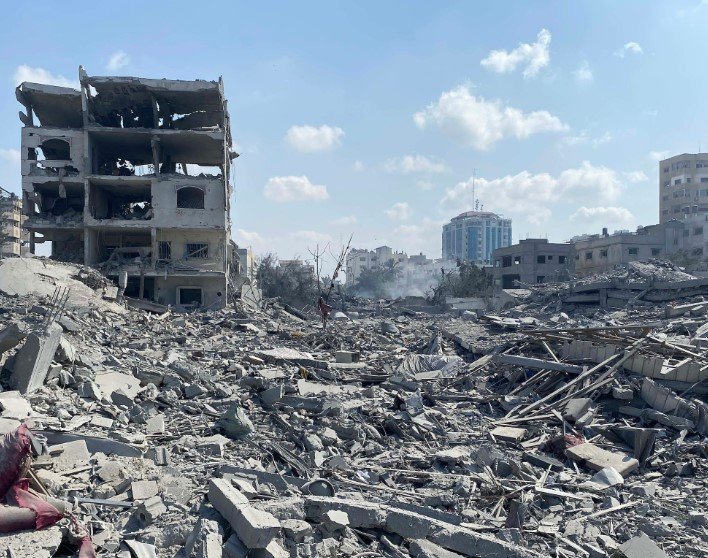At least 330 people were killed in Gaza on Tuesday in a sweeping Israeli air offensive targeting Hamas strongholds, marking the deadliest assault since the fragile ceasefire began on January 19.
A Devastating Turn
The strikes hit hard and fast. Gaza’s civil defense agency reported that children, women, and elderly civilians made up the bulk of the casualties. Roughly 150 others were injured.
Explosions echoed across the strip — from Gaza City in the north to Khan Younis and Rafah in the south. It wasn’t just one area, it was everywhere.
Mahmud Abu Watfa, a key figure in Hamas’s internal security, was among those reportedly killed. His death signals a blow to Hamas’s operational structure.
Ramadan in Ruins
The timing of the attack couldn’t be more painful. The strikes came during the holy month of Ramadan, a period traditionally centered on prayer and peace.
For many families, the sound of evening prayers was drowned out by the roar of warplanes. Homes collapsed. Streets filled with dust and debris. The air thickened with smoke and grief.

In a statement, Gaza’s health ministry called the humanitarian toll “catastrophic,” highlighting that hospitals — already overwhelmed — were running out of critical supplies.
A War Without End
The conflict traces back to October 7, 2023, when Hamas launched a surprise attack on Israel, killing civilians and soldiers alike. Israel’s retaliation came swiftly and hasn’t stopped since.
Ceasefire talks, mediated by Egypt and Qatar, have been stalled for weeks. Both sides accuse the other of bad faith and broken promises.
- Israel insists that Hamas must fully disarm.
- Hamas demands a permanent end to the blockade and the release of prisoners.
Neither side is budging.
Civilian Casualties Soar
The United Nations released a statement urging restraint, warning that civilian casualties are rising at an “alarming rate.”
Gaza, already struggling under an economic blockade, is now facing food, water, and medical shortages. Families displaced by the bombings have nowhere to go.
A Gaza-based doctor described the situation bluntly: “It’s like watching your city get erased, bit by bit.”
Regional Fallout
The violence isn’t staying within Gaza’s borders. Protests erupted in the West Bank, Lebanon, and Jordan, with demonstrators demanding global action to stop the bloodshed.
Meanwhile, the U.S. called for “de-escalation,” though it reaffirmed its support for Israel’s right to defend itself.
Iran, a longtime Hamas ally, condemned the strikes and warned of “consequences.”
